
"To help save the planet, governments across the globe are choosing to adopt sustainable policies and encourage (or coerce) the private sector to do the same. Given the climate crisis, most responsible governments are focusing on finding every possible means to meet existing needs without sacrificing the planet to meet the needs of future generations.
In South Africa things are different. Although the country has presented guidelines for a just transition to greener energies, this has not been out of choice, but out of necessity. It is mainly due to the collapse of the country’s energy infrastructure, not government leadership or a change of mind among the coal lobby.
State-owned enterprises, specifically in electricity, rail and ports, are a legacy of the apartheid state and South Africa’s post-apartheid settlement. Being state-owned isn’t a problem, as long as an enterprise is run well. But in South Africa the government has failed to run them well. And failure in these areas has resulted in a turn to the private sector – either to help fix electricity, rail and the ports, or to fill the vacuum in other ways.
Even where government has adopted sustainable policies, the private sector has become the major driver of this shift, further worsening inequality.
The problem with greater private sector involvement is the sector’s profit motive. Not only are private sector-driven solutions only for those who can pay, they also end up driving public priorities. Thus, those who can pay also drive ‘development’, instead of government deciding in the interests of society as a whole (now and in the future). This is the reverse of how things should be.
Esta historia es de la edición June 21, 2024 de Farmer's Weekly.
Comience su prueba gratuita de Magzter GOLD de 7 días para acceder a miles de historias premium seleccionadas y a más de 9,000 revistas y periódicos.
Ya eres suscriptor ? Conectar
Esta historia es de la edición June 21, 2024 de Farmer's Weekly.
Comience su prueba gratuita de Magzter GOLD de 7 días para acceder a miles de historias premium seleccionadas y a más de 9,000 revistas y periódicos.
Ya eres suscriptor? Conectar
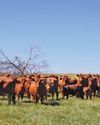
The genetically unique Senepol: ideal for beef production in Southern Africa
Since its arrival in South Africa in 2001, the Senepol has become a strong contender in the country's beef cattle arena. Tiekie Muller, owner of the Nooitgedacht Senepol stud, spoke to Annelie Coleman about how the growing number of Senepol stud breeders underpins the value of the breed under exacting African conditions.

Microwave mango and granadilla cheesecake
This delicious mango fridge tart is so easy to make, perfect when you want a quick yet indulgent dessert (it only takes 25 minutes to whip up). The fruit’s gorgeous colour and fragrance are maximised.
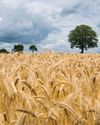
Global outlook for wheat in 2024/25
In its latest estimate, the International Grains Council has adjusted global wheat production for the coming season due to poorer-than-expected harvests in the EU. However, global supplies remain strong, while global consumption is expected to increase to reach about 804 million tons. Janine Ryan reports.
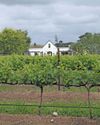
From fallow land to award-winning wines: the Newstead story
Newstead Lund Family Vineyards, a relatively new wine estate, has established itself as one of the best producers of sparkling wine in South Africa. Owners Doug and Sue Lund spoke to Glenneis Kriel about their production philosophy, rise to success, and possible expansion plans.

Fact file of fungal diseases in wheat
Wheat is a significant crop, and like other crops, is susceptible to a range of infections. Here, we provide information on the most important fungal diseases that affect wheat.
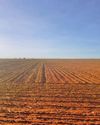
Soil preparation for wheat and other cereals
For seed to germinate and plants to grow, soil often needs to be prepared. The manner in which it is done depends on the type of soil, the organic matter and moisture it contains, the crop to be planted, as well as the previous crop that was planted in the field. Magda du Toit spoke to cereal experts and farmers for guidance.

The origin of the Bonsmara
The Breed of the Month for March is the Bonsmara. In this first article, we take a look at the man behind this popular cattle breed, as well as how it was developed.

The Southern Sun Cape Sun hotel is once again a destination of choice
While some of its contemporaries have suffered from inner-city neglect, the Southern Sun Cape Sun hotel has bounced back in elegance and style, writes Brian Berkman.

Age catches up with the Nissan Navara
The Navara line-up was increased last year in Nissan's effort to win back market share. The Citizen's Mark Jones sampled the top-of-the-range Pro-4X to see how the double cab compares with modern bakkies.
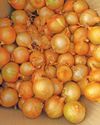
Growing onion sets
Bill Kerr discusses what onion sets are, and how and when to produce them to obtain the maximum financial benefit.